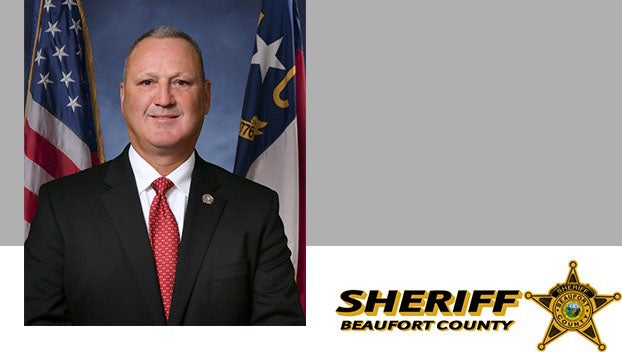Budget proposal unveiled
Published 6:46 pm Thursday, April 19, 2012
Property-tax rate would remain unchanged
Washington’s proposed overall budget for the next fiscal year is more than $3 million less than the current budget, and it does not raise the city’s property-tax rate.
The proposed overall budget for fiscal year 2012-2013, which begins July 1, is $62,488,740. The current budget is $65,730,723, which is $3,241,983 more than the proposed budget.
The proposed budget reflects the decline in recent years of revenues coming into the city and the City Council’s desire to reduce spending when and where possible.
The proposed general fund — which pays for the day-to-day operations of city government — for the upcoming fiscal year is less than the current general fund. The proposed general fund is $14,502,346, which is $1,220,239 less than the current general fund of $15,722,585.
The proposed $38,593,923 budget for the electric fund is less than the current electric-fund budget of $39,546,095, a difference of $952,172.
The proposed budget also reflects the council’s effort to reduce the amount of the transfer from the electric fund to the general fund. City Manager Josh Kay’s proposed budget recommends transferring $846,121 from the electric fund to the general fund. The current budget transferred $973,150 from the electric fund to the general fund. Until about three years ago, that annual transfer was slightly more than $1 million.
Councilman Doug Mercer, who has voted against city budgets in the past because he believed they did not realistically anticipate revenues and curtail expenses, weighed in on the proposed budget.
“There are two or three things I like. First of all, it is more realistic, I believe, in term of anticipated revenues than any budget I’ve looked at in the past five years,” he said. “Secondly, it does not draw on fund balance, except in one case, I think it is. It definitely achieved a goal there. It reduces the total amount of monies that we are going to borrow, although we’re still borrowing a substantial amount of money, it’s reduced from what it has been in prior years. It also reduces the transfer from the electric fund into the general fund, which I hope, ultimately, is going to result in a reduction in the electric rates.”
Councilman Edward Moultrie Jr. also took notice of the continued decrease in that transfer.
“I think it’s good,” he said.
In recent years, the council has worked toward reducing the amount of the annual transfer, with the goal of eliminating that transfer.
Many Washington Electric Utilities customers who don’t live in the city object to transferring money from the electric fund to the general fund. They contend that at least part of the money they pay on their electric bills is used to subsidize city operations, services and programs. Eliminating the annual transfer — or reducing it — and making the general fund self-supporting likely would require finding revenue sources to replace the transfer amount, cutting expenses or a combination of the two, city officials have said in the past.
Moultrie said he’s looked at the proposed budget, but not as thoroughly has he plans to do in the future.
“I guess what I like about it is we’re trying to reduce the overall city budget to bring it under control,” he said. “We can be more conservative in our spending. I know that some folks were questioning the funding levels for different (outside) agencies. I guess that’s one thing that I don’t like about it, but I understand we’re trying to curtail this budget. The budget is tight, financially.”
Although the proposed budget does not call for reducing electric rates, that’s something the city should pursue, if possible, for inclusion in the 2013-2014 fiscal year budget, Moultrie said.
Asked if the proposed budget reflects the fiscal concerns the council and Mayor Archie Jennings have passed on to Kay, Mercer said, “I think so. I think the manager heard us tell him that we wanted a smaller budget, a more realistic budget and we wanted to reduce spending. I think that we’ve done that.”
Moultrie said he’s pleased with the effort that Kay and city staff put into developing the proposed budget.
“They spent some detailed time in doing the budget. It’s up to the council now do our part to either accept or reject items in the proposed budget then approve the proposed budget,” he said.
Mercer said the increase in the cost of providing health insurance to city employees concerns him.
“Those things went up astronomically, even with the reduction or the change in the way we’re handling some of the benefits, and the fact that we’re passing on some of the cost to the employee, there’s still a substantial increase in health-insurance costs. … We’re going to have to look at that and do what we have to do,” Mercer said.
Mercer declined to commit himself to voting for this proposed budget, even with expected modifications by the council.
“I definitely am more encouraged by the presentation in this budget than I have been with any of the past four,” he said.
Proposed budget highlights
- Property-tax rate remains at 50 cents per $100 valuation, meaning the annual tax on a $100,000 house would be $500.
- Reduces the transfer of money from the electric fund to the general fund.
- Allocates $429,966 toward debt service (loans and bonds).
- Projects taking in $3.9 million in property-tax revenue for 2012.
- Projects taking in $240,000 in occupancy-tax revenue, with most of that going to the Washington Tourism Development Authority.
- No use of fund balance to help balance the budget.






